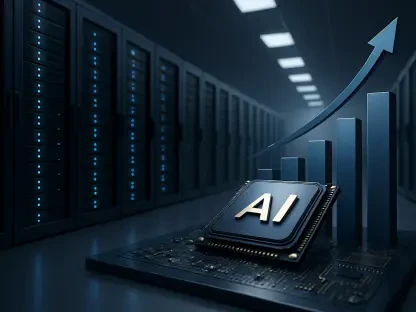In recent years, the rise of artificial intelligence has profoundly impacted various industries, altering the technological infrastructure and enhancing capabilities. Yet, despite its transformative potential, AI has its pitfalls, serving as both a boon and a hindrance. This article rounds up expert opinions on the challenges AI has presented and the wisdom gleaned from notable missteps.
Setting the Stage: AI’s Impact and Its Complex Journey
Artificial intelligence has come a long way since its inception, establishing a pivotal role in today’s technological ecosystem. Industry leaders recognize its ability to improve efficiencies, drive innovation, and redefine industry practices. However, with its extensive reach, AI’s journey has also been marred by notable failures, often bringing unintended consequences. This discussion gathers insights into these missteps, offering a comprehensive examination of past lessons.
Navigating AI’s Treacherous Terrain
Understanding Data’s Crucial Role
The debate surrounding data management in AI emphasizes its critical importance in ensuring reliability. Many experts argue that historical AI failures often stem from data inadequacies, making a compelling case for improved data governance. The discussions converge on concerns over privacy, accuracy, and ethical data management, revealing the complexities developers face.
Decision-Making Dilemmas in AI Applications
AI significantly influences business decisions, with AI-driven models transforming industry practices. However, these systems are not infallible. Experts recount situations where AI applications resulted in unwanted outcomes due to flawed algorithms and poor oversight. Balancing opportunities against potential risks remains a challenge, urging a cautious approach in strategic implementation.
Future Trends and Technological Disruptions
Emerging AI advancements promise to reshape industries, bringing unprecedented changes. Analysts note that regional differences and technological advances contribute significantly to AI development trajectories. By dispelling myths and scrutinizing perceptions, the conversation leans towards offering a clearer picture of AI’s evolving role.
Ethical Boundaries and Technological Accountability
As AI progresses, moral dilemmas and questions of accountability become increasingly prominent. Scholars advocate for developing regulations that align with advances in AI technology. Differing philosophies suggest various approaches to ethical considerations, pushing for a framework that balances innovation with responsibility.
Culminating Insights and Forward-Thinking Strategies
Reflecting on AI’s journey, the lessons learned underscore essential insights into the integration of this technology. Best practices for responsible implementation emphasize diligent oversight. Experts provide actionable guidelines to harness AI while addressing potential risks, ensuring a thoughtful approach to its deployment.
A Vision for AI’s Responsible Future
The insights gathered here highlight the lasting impact ethical AI integration can have on future technological landscapes. While AI continues to evolve, its influence on both industrial and societal domains remains strong. By promoting proactive engagement and innovative strategies, stakeholders can steer AI’s development in a responsible direction, aligning technological advancements with ethical considerations.









